Determining the market bottom requires a lot of guesswork. Bitcoin’s recent volatility has resulted from various factors ranging from geopolitical uncertainty and local regulation to internal implosions of the crypto market.
Miners have historically been one of the most reliable omens of Bitcoin’s performance.
Bitcoin miners make up the foundation of the crypto market and create strong resistance levels that reduce volatility. As one of the largest holders of BTC, miners can swing the market by holding their coins and liquidating them.
Analyzing the state of the market requires analyzing the state of Bitcoin miners.
As previously covered by CryptoSlate, some of the most solid indicators of miner health have been hash ribbons.
Hash ribbons indicate when miners capitulate, showing the divergence between the 30-day moving average and the 60-day moving average of the Bitcoin hash rate; having miners capitulate shows that Bitcoin has become too expensive to mine — i.e., Bitcoin’s market price is too low to cover the cost of electricity required to produce it.
According to hash ribbons, the worst of the miner capitulation is usually over when the 30-day MA of the Bitcoin hash rate crosses above the 60-day MA. Since the beginning of the year, we’ve seen three separate instances of this switch, shown in dark red on the graph below.
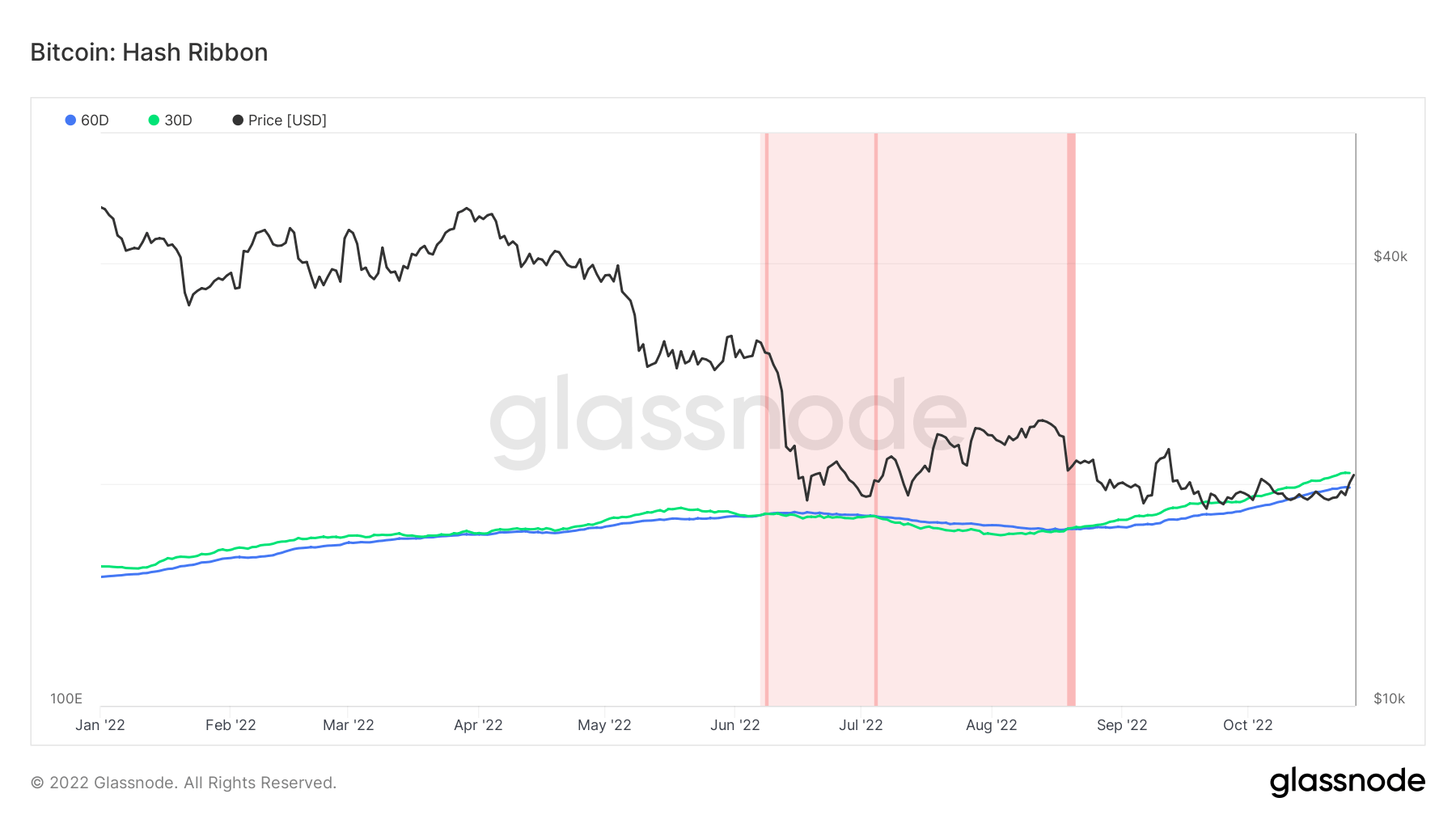
Data analyzed by CryptoSlate showed that severe miner capitulation began mid-June this year and lasted until mid-August. The data is supported by crossing the hash ribbons illustrated in the graph above.
Looking at BTC holdings from the top 9 largest publicly listed Bitcoin mining companies further supports this trend. Several large miners created heavy selling pressure between May and June, liquidating around 8,765 BTC.
And while the selling pressure seems to have steadied on a month-to-month basis since June, quarterly data paints a much different picture.
The top 9 public Bitcoin miners saw their holdings decrease from 125,171 BTC in the second quarter to 102,407 in the third quarter.

The numbers shown in the table above decreased even further in October. Earlier this month, Core Scientific liquidated over 1,000 BTC it held in September and reported holding just 24 BTC on October 26.
With mining difficulty and the hash rate at their all-time high, miners are getting squeezed in terms of their revenue and resources. The average hash rate has been growing each quarter in 2022 and is expected to increase at an even higher rate as the fourth quarter ends.
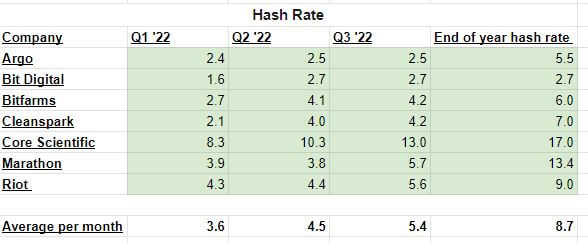
Data analyzed by CryptoSlate showed that Bitcoin’s drop in the year’s second half caused a notable reduction in miner revenue.
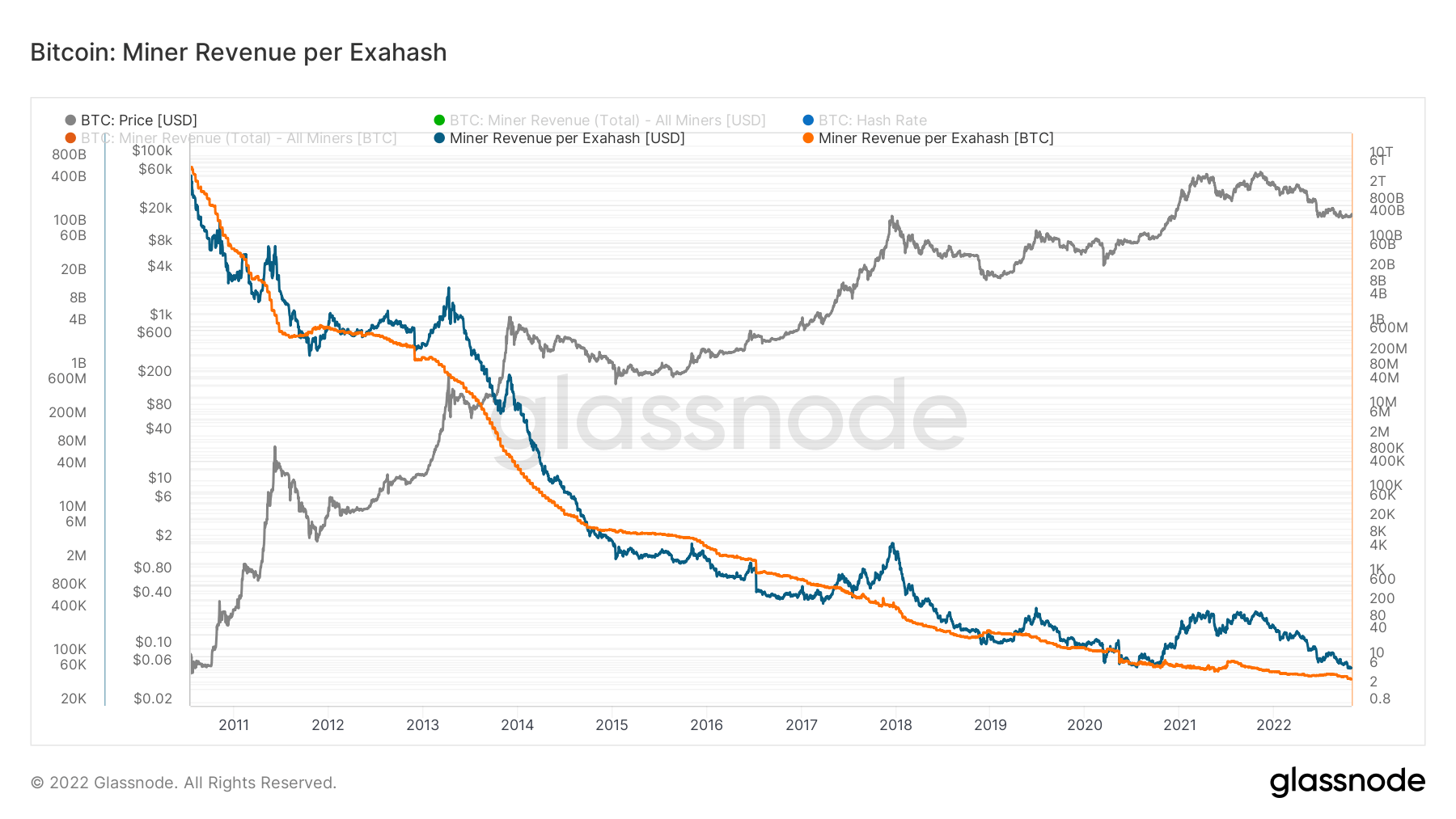
Bitcoin’s price volatility, dropping revenue, and decreasing BTC holdings have also affected the stock market. The shares of all publicly listed Bitcoin mining companies have been on a sharp drop since peaking in October 2021. Core Scientific leads the way, with CORZ down almost 90% in the past year, with Argo Blockchain and BitDigital close behind with an 88% drop.
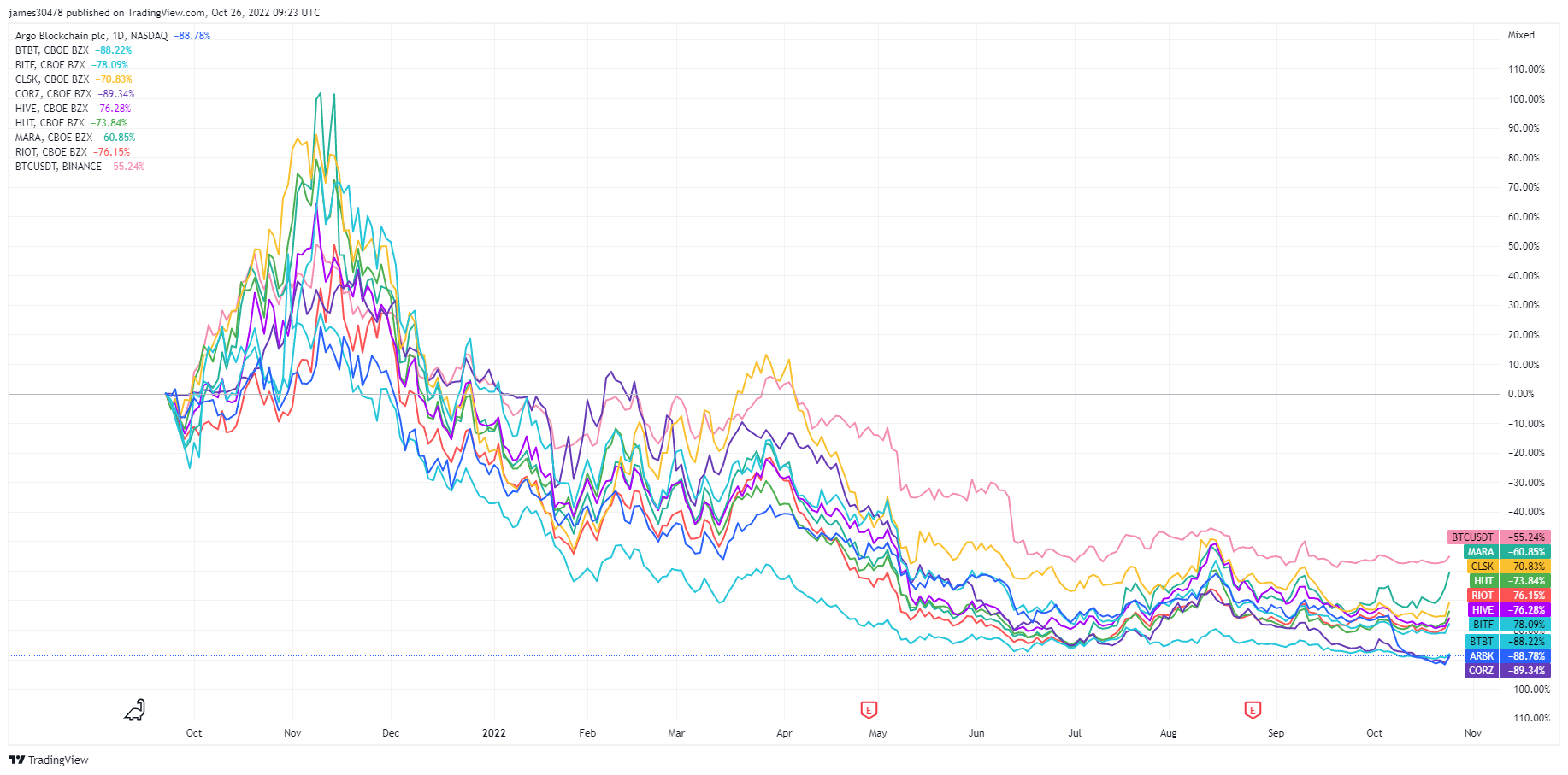
With the hash rate expected to grow even further and no end in sight to the bear market, we could see the ongoing miner capitulation continue until the end of the year. And while data shows that miners have exited the dark red zone and are either flatlining or consolidating, the worse isn’t over. If current conditions continue, we could see another miner capitulation before the end of the year, creating additional selling pressure that could further swing the sensitive market.
Read More: cryptoslate.com






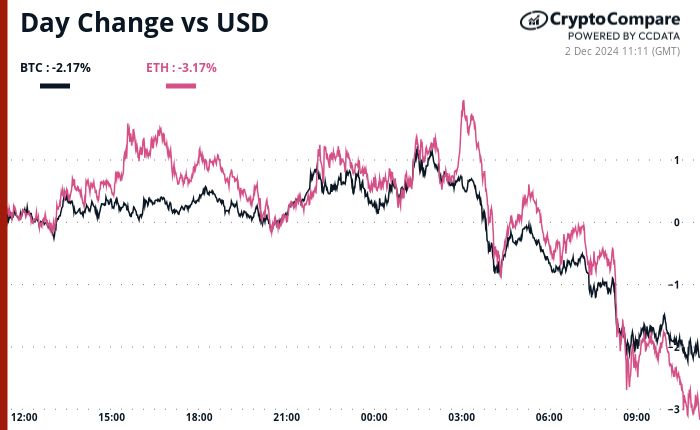

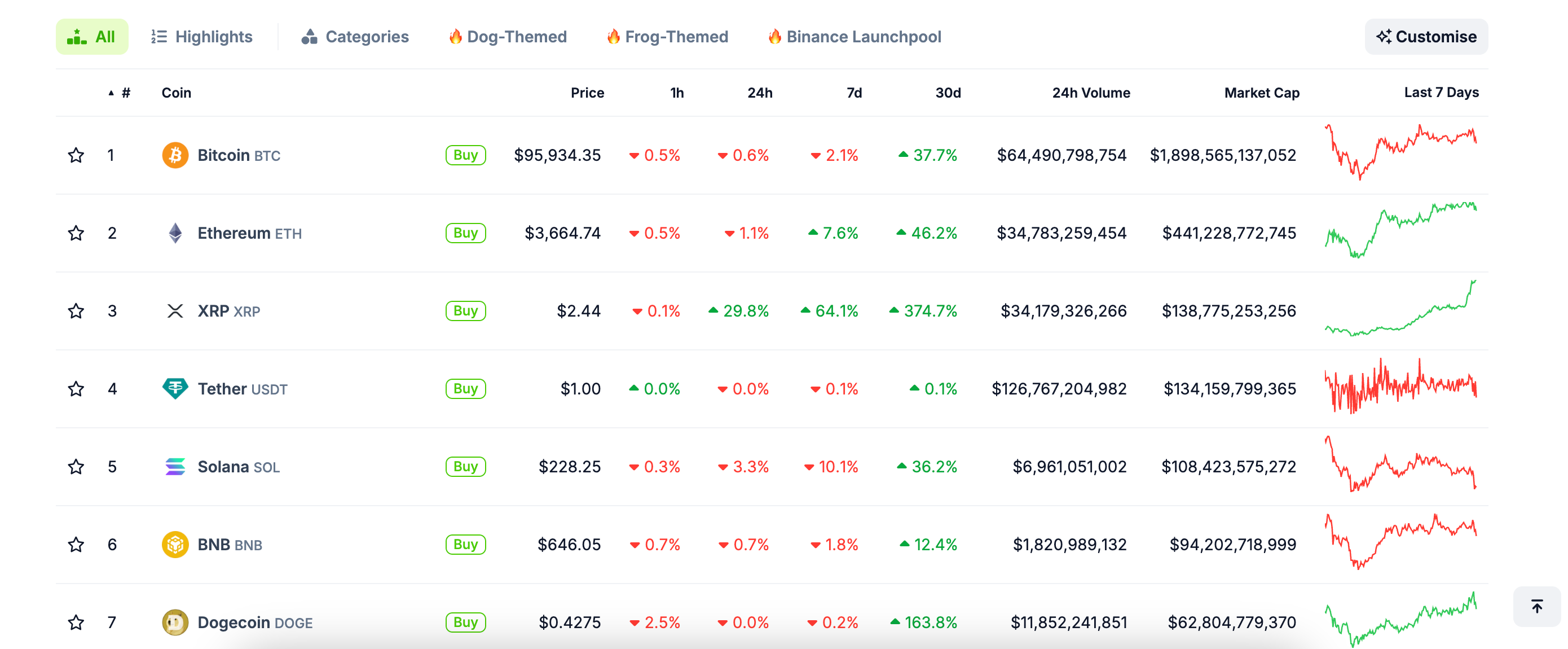


 Bitcoin
Bitcoin  Ethereum
Ethereum  XRP
XRP  Tether
Tether  Solana
Solana  Dogecoin
Dogecoin  Cardano
Cardano  USDC
USDC  Lido Staked Ether
Lido Staked Ether  Avalanche
Avalanche  TRON
TRON  Shiba Inu
Shiba Inu  Stellar
Stellar  Toncoin
Toncoin  Wrapped stETH
Wrapped stETH  Polkadot
Polkadot  Chainlink
Chainlink  Wrapped Bitcoin
Wrapped Bitcoin  Hedera
Hedera  WETH
WETH  Bitcoin Cash
Bitcoin Cash  Sui
Sui  Litecoin
Litecoin  Pepe
Pepe  Uniswap
Uniswap  NEAR Protocol
NEAR Protocol  LEO Token
LEO Token  Wrapped eETH
Wrapped eETH  Aptos
Aptos  Internet Computer
Internet Computer  USDS
USDS  POL (ex-MATIC)
POL (ex-MATIC)  Ethereum Classic
Ethereum Classic  Cronos
Cronos  Artificial Superintelligence Alliance
Artificial Superintelligence Alliance  Ethena USDe
Ethena USDe  Render
Render  Bittensor
Bittensor  Filecoin
Filecoin  Algorand
Algorand  Arbitrum
Arbitrum  Aave
Aave  Dai
Dai  Cosmos Hub
Cosmos Hub  Stacks
Stacks  WhiteBIT Coin
WhiteBIT Coin  Immutable
Immutable